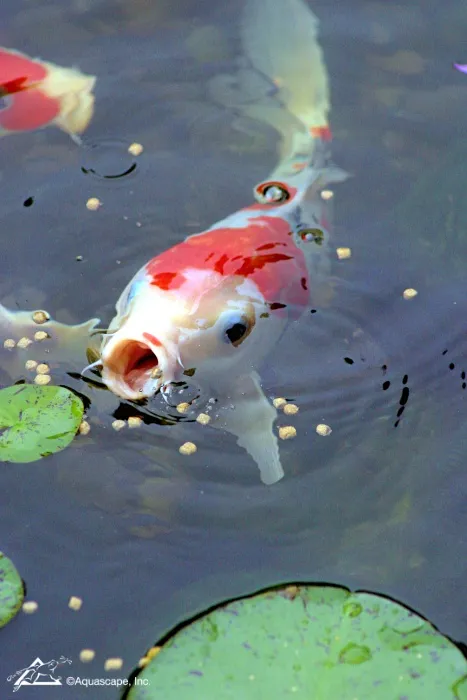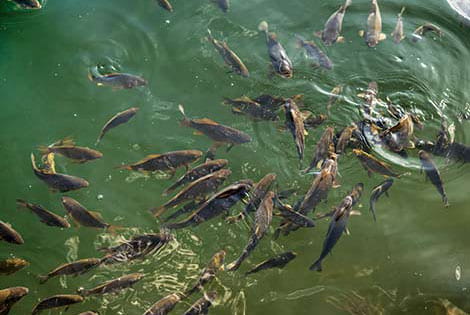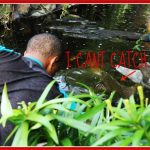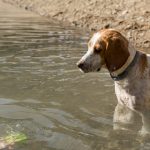If you’re a proud owner of a beautiful pond, then you may have pondered over what exactly your pond fish eat. Providing the right kind of food for your pond fish is crucial for their health and well-being. In this comprehensive guide, we’ll explore the dietary needs of pond fish, the best types of food to feed them, and some essential tips for maintaining a healthy pond ecosystem.

Credit: www.aquascapeinc.com
Dietary Needs of Pond Fish
Understanding the dietary needs of pond fish is the first step in ensuring their optimal health. Pond fish are omnivorous, meaning they consume both plant and animal matter. Their diet typically consists of:
- Protein: Protein is essential for the growth and development of pond fish. It helps in building and repairing body tissues, and is crucial for overall health.
- Carbohydrates: Carbohydrates provide energy for pond fish, enabling them to carry out their daily activities and functions.
- Fats: Fats are a concentrated source of energy and also aid in the absorption of fat-soluble vitamins.
- Vitamins and Minerals: Pond fish require a variety of vitamins and minerals to maintain optimal health and support bodily functions.
- Fiber: Fiber aids in digestion and helps prevent digestive issues in pond fish.
Types of Food for Pond Fish
When it comes to feeding your pond fish, there are various types of food that cater to their specific dietary needs. Here are some of the best options:
Commercial Fish Food
Commercial fish food is formulated to provide a balanced diet for pond fish. It comes in various forms such as pellets, flakes, and sticks, and is designed to float on the water’s surface, making it easily accessible for the fish to consume. Look for high-quality fish food that contains a good balance of protein, carbohydrates, fats, vitamins, and minerals.
Live Food
Live food such as worms, insects, and small crustaceans can be excellent sources of protein for pond fish. Offering live food can simulate the natural hunting and foraging behavior of the fish, providing both physical and mental stimulation.
Frozen Food
Frozen food options like bloodworms, brine shrimp, and daphnia are convenient alternatives to live food. They retain much of their nutritional value and can be easily stored for future use.
Vegetables And Fruits
Pond fish also benefit from a diet that includes vegetables and fruits. Peas, lettuce, and cucumbers are popular choices and provide essential fiber and nutrients for the fish.

Credit: aqualifeponds.com
Feeding Tips for Pond Fish
Feeding your pond fish requires some care and attention to ensure they receive the right amount of food without overfeeding. Here are some essential feeding tips:
- Feed small amounts multiple times a day rather than a large quantity all at once. This helps prevent food wastage and maintains water quality.
- Observe the fish while feeding to ensure that all of them are getting their share of food. If some fish are being overly aggressive at feeding times, consider spreading the food out in different areas of the pond.
- Remove any uneaten food after a few minutes to prevent it from decomposing and affecting the water quality.
- During colder months, reduce the frequency of feeding as the fish’s metabolism slows down. Be mindful of not overfeeding during this time.
Maintaining a Healthy Pond Ecosystem
Feeding your pond fish goes hand in hand with maintaining a healthy pond ecosystem. Here are some tips to ensure your pond remains a thriving environment for your fish:
- Water Quality: Regularly test the water quality of your pond and ensure that it is well-maintained. Proper filtration, aeration, and water circulation are essential for the health of pond fish.
- Plant Life: Incorporate aquatic plants in your pond. They not only provide natural filtration, but also offer additional food sources for your fish.
- Balance: Strive to maintain a balance in your pond ecosystem. Avoid overcrowding the pond with too many fish, as this can lead to increased competition for food and potential health issues.
- Seasonal Changes: Be mindful of how seasonal changes can affect your pond and the dietary needs of your fish. Adjust feeding schedules and quantities accordingly.
Conclusion
Understanding what pond fish eat and providing them with a well-balanced diet is crucial for their overall health and well-being. By offering a variety of high-quality commercial fish food, live food, and vegetables, and adhering to proper feeding practices, you can ensure that your pond fish thrive in their environment. Additionally, maintaining a healthy pond ecosystem through proper water quality management and thoughtful consideration of seasonal changes will contribute to the well-being of your pond fish for years to come.
Remember, a well-fed and cared for pond fish population leads to a beautiful and thriving pond ecosystem that you can enjoy for years to come.





